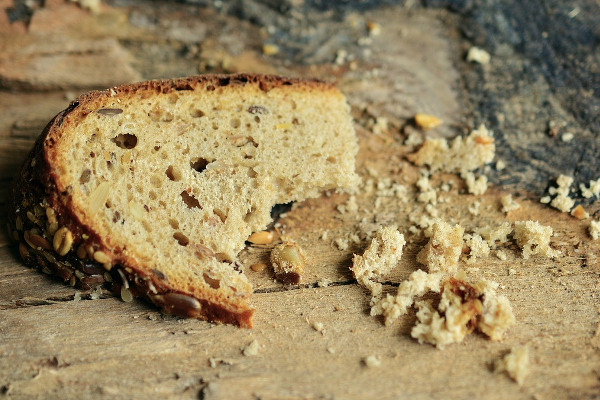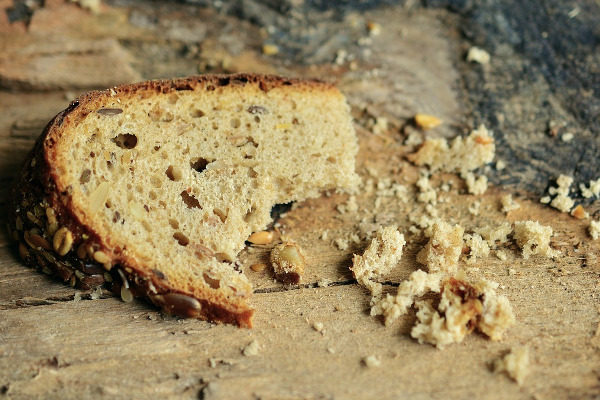

By: Uswatul Muslimah
Source: Uswatul Muslimah
On one occasion, after Prophet Isma‘il (Ishmael – عَلَيْهِ ٱلسَّلامُ) had married, Prophet Ibrahim (Abraham – عَلَيْهِ ٱلسَّلامُ) came to visit him in Makkah Mukarramah. On arriving at his home, however, he did not meet Prophet Isma‘il (عَلَيْهِ ٱلسَّلامُ), as he was out, and instead met the wife of Prophet Isma‘il (عَلَيْهِ ٱلسَّلامُ). As she had never met Prophet Ibrahim (عَلَيْهِ ٱلسَّلامُ) before, she did not recognize him.
Prophet Ibrahim (عَلَيْهِ ٱلسَّلامُ) asked her where Prophet Isma‘il (عَلَيْهِ ٱلسَّلامُ) was to which she replied, “He has gone to find sustenance for us (i.e. he has gone out to hunt).” Prophet Ibrahim (عَلَيْهِ ٱلسَّلامُ) next asked her regarding their condition and state. She replied by complaining and mentioning, “We are in a bad condition. We are undergoing constraints and poverty.” Prophet Ibrahim (عَلَيْهِ ٱلسَّلامُ) then said to her, “When your husband arrives, convey my salaam to him, and tell him to change his doorstep.”
When Prophet Isma‘il (عَلَيْهِ ٱلسَّلامُ) later returned, he perceived that someone had visited, and thus asked his wife, “Did anyone come?” She replied, “Yes, an old man with such-and-such an appearance arrived. He asked me where you were, and so I told him that you were out. He asked me regarding our condition, and so I told him that we are in difficulty and hardship.” Prophet Isma‘il (عَلَيْهِ ٱلسَّلامُ) asked her, “Did he give you any message?” She replied, “Yes, he told me to convey salaam to you, and to tell you to change your doorstep.” Prophet Isma‘il (عَلَيْهِ ٱلسَّلامُ) responded, “That was my father, Prophet Ibrahim (عَلَيْهِ ٱلسَّلامُ). He has instructed me to separate from you.” (Prophet Ibrahim [عَلَيْهِ ٱلسَّلامُ] was actually referring to the wife of Prophet Isma‘il [عَلَيْهِ ٱلسَّلامُ] when he used the term ‘doorstep’.)
After some time had passed, Prophet Isma‘il (عَلَيْهِ ٱلسَّلامُ) remarried. When Prophet Ibrahim (عَلَيْهِ ٱلسَّلامُ) came to visit him after he remarried, he was again out of the home. Hence, Prophet Ibrahim (عَلَيْهِ ٱلسَّلامُ) met his wife who did not recognize him. Prophet Ibrahim (عَلَيْهِ ٱلسَّلامُ) asked her where Prophet Isma‘il (عَلَيْهِ ٱلسَّلامُ) was to which she answered, “He has gone to search for sustenance for us.” Prophet Ibrahim (عَلَيْهِ ٱلسَّلامُ) next asked her regarding their condition. She praised Allah Ta‘ala and replied, “We are in a good condition, enjoying prosperity.” Prophet Ibrahim (عَلَيْهِ ٱلسَّلامُ) then said to her, “When your husband arrives, convey my salaam to him, and tell him to keep and look after his doorstep.”
When Prophet Isma‘il (عَلَيْهِ ٱلسَّلامُ) later returned, he perceived that someone had visited, and thus asked his wife, “Did anyone come?” She replied in the affirmative and informed Prophet Isma‘il (عَلَيْهِ ٱلسَّلامُ) of what had transpired, together with conveying to him the salaam and the message of Prophet Ibrahim (عَلَيْهِ ٱلسَّلامُ). Prophet Isma‘il (عَلَيْهِ ٱلسَّلامُ) responded, “That was my father, and you are the ‘doorstep’ to which he referred. He has instructed me to keep you as my wife and look after you.” (Saheeh Bukhaari #3364)
NB: The doorstep acts as a form of protection for the door and the home. Similarly, the woman of the home is a form of protection for the home, as she guards the home in the absence of the husband. Further, the wife always remains at home (in the ideal situation) just as the doorstep never moves and always remains in one place. For this reason, the word ‘doorstep’ was used to refer to the woman of the home. (Fathul Baari vol. 6, pg. 499 and Al-Kautharul Jaari vol. 6, pg. 261)
Lessons:
- The first wife and second wife of Prophet Isma‘il (عَلَيْهِ ٱلسَّلامُ) had lived in the same home and had both experienced the same conditions of hardship. However, there was a great difference between the two wives. The first wife had the bad qualities of ingratitude and complaining, and hence she was deprived of remaining in the marriage of Prophet Isma‘il (عَلَيْهِ ٱلسَّلامُ). The second wife was blessed with the qualities of gratitude for the favours they enjoyed, patience over their hardships, and contentment with the little that they had, and so she was honoured to remain the wife of Prophet Isma‘il (عَلَيْهِ ٱلسَّلامُ).
- The importance of the wife remaining grateful to her husband and abstaining from complaining can be clearly understood from the hadeeth in which Rasulullah (ﷺ) warned the women of this ummah that one of the main causes for them entering Jahannum is their excessive complaining and lack of appreciation for the favours and kindness of the husband (Saheeh Muslim # 2048). In another hadeeth, Rasulullah (ﷺ) described those women who do not have the quality of appreciation saying, “If you treat such a woman kindly for your entire life, and she thereafter sees something from you (that she dislikes), she will say, ‘I never saw any good from you!’ (i.e. on account of one unhappy experience, she will immediately forget the lifetime of good that you showed her and will immediately complain.)” (Saheeh Bukhaari #29)
- Prophet Isma‘il (عَلَيْهِ ٱلسَّلامُ) heeded the advice of his father, Prophet Ibrahim (عَلَيْهِ ٱلسَّلامُ), regarding his wife. Similarly, we should ensure that we consult and follow the advice of our parents and elders when choosing a spouse.



